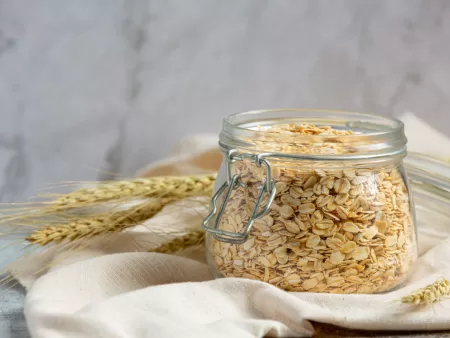
Nowadays, everybody is trying to unravel the secret of wellness and vitality. Fortunately, this article will assist individuals in discovering the pivotal ingredients to a dynamic and healthy life. Uncover the force of nutrition, analyze healthful food selections, and go on a trip toward a proportional and nourishing lifestyle. Join us as we dive deeper into the art of crafting a diet that contributes to well-being, energy, and longevity.
What is a Healthy Diet?
A healthy diet is a paramount element of general well-being, ensuring the required nutrients and energy for optimal bodily function. It assumes making deliberate choices about the foods and beverages we utilize to uphold or reinforce our healthiness. A properly balanced and nutritious diet sustains growth, expansion, and the prevention of miscellaneous chronic ailments.
Benefits of a Healthy Diet
Upholding a healthy diet is of utmost significance for general well-being and can greatly influence multifarious facets of your life. For instance, a proportional and healthy diet assists individuals in boosting energy levels and the capability to concentrate, strengthening the immune system, diminishing the likelihood of various ailments, improving gut healthiness and digestion, etc. By making proper food choices, you will become a step closer to a healthy and fulfilling life.
Energy levels and ability to focus
Sustaining a healthy diet greatly boosts energy levels and promotes optimal concentration. Nutrient-rich foods supply constant fuel for the body, contributing to vitality and mental clarity. A proportional diet, high in vitamins and minerals, sustains cognitive function, aiding individuals in staying energetic and concentrated throughout the day. Giving priority to nutrition drives to general well-being, positively influencing both physical and mental performance.
Immune system
Also, a nutritious diet plays a pivotal role in strengthening the immune system. Adequate consumption of vitamins, minerals, and antioxidants sustains immune function, assisting the body in resisting infections and illnesses. A properly balanced diet, comprising fruits, vegetables, and whole grains, promotes optimal immune response, driving to general healthiness and well-being.
Lowers risk for obesity
In addition, upholding a healthy diet significantly diminishes the probability of obesity and its associated health troubles, in particular, heart disease, high blood pressure, and diabetes. By giving priority to nutrient-rich meals and conscious eating, individuals improve their general well-being, promoting a healthier lifestyle and minimizing the likelihood of appearing of these severe medical ailments.
Gut health and digestion
Furthermore, a healthy diet is paramount for optimal gut healthiness and digestion. Nutrient-rich products sustain the development of beneficial gut bacteria, enhancing digestion and absorption of crucial nutrients. This contributes to a balanced microbiome, diminishing the chance of digestive troubles and improving general well-being. Giving priority to a nutritious diet promotes a healthier gut, driving to improved digestion and long-term health advantages.
Components of a Healthy Diet
According to physicians’ viewpoints, a healthy diet is vital for general well-being, granting the required nutrients to sustain bodily functions, contribute to growth and development, and diminish the likelihood of chronic ailments. The components of a healthy diet comprise a balance of macronutrients, micronutrients, and miscellaneous dietary factors. These components can be detected in fruits, dairy products, vegetables, whole grains, and other products.
Fruits and Vegetables
Among the pivotal elements of a healthy diet, fruits and vegetables play a decisive role. Full of vitamins, minerals, fiber, and antioxidants, these bright and delicious products deliver a myriad of health advantages.
Routine consumption of fruits has been connected with a diminished risk of chronic ailments, in particular, heart disease, some cancers, and neurodegenerative disorders. The antioxidants in fruits assist in struggling with oxidative stress and inflammation in the body.
Vegetables, in turn, contain a broad spectrum of nutrients, involving vitamins (e.g., vitamin A, vitamin K, vitamin C), minerals (e.g., potassium, magnesium), and phytochemicals. The majority of vegetables are low in calories and rich in nutrients, making them a worthwhile complement to a weight-oriented diet.
Whole Grains
Also, whole grains play a crucial role in attaining and upholding good healthiness. These foods are a noteworthy element of a proportional diet, ensuring significant nutrients and countless health benefits. Brown rice, oats, barley, and whole wheat are regarded as some of the examples of whole grains.
Lean Protein
Lean protein is a paramount building block for miscellaneous bodily functions, playing a paramount role in muscle development, immune system reinforcement, and general tissue restoration. Adding lean protein to your ration can contribute to weight control, improve metabolism, and grant a steady source of energy. Suitable sources of lean protein are poultry (skinless chicken and turkey breasts), fish (salmon, tuna, and mackerel), lean cuts of beef and pork, eggs, etc.
Healthy Fats
Another pivotal component that frequently demands attention is the type and amount of fats ingested. Healthy fats play a decisive role in sustaining multifarious bodily functions and reinforcing general healthiness. Comprehending the importance of adding healthy fats to your ration can contribute to a proportional and nutritious eating plan.
Dairy
Dairy products are an indispensable element of a healthy and proportional diet, granting a rich source of pivotal nutrients that drive to overall well-being. The major components of dairy involve milk and its derivatives, in particular, cheese and yogurt. Calcium, protein, vitamin D, phosphorus, and probiotics refer to key elements that make dairy a crucial part of a healthy diet.
Staying Hydrated
Proper hydration is a significant but frequently overlooked element of a properly balanced diet. Staying sufficiently hydrated is demanded for multifarious bodily functions and can have a considerable influence on general well-being.
The most natural and practical way to stay hydrated is by drinking a sufficient amount of water. Water does not contain calories and caffeine. It plays a pivotal role in upholding proper levels of body hydration.
Creating a Balanced Nutritious Plan
Developing a balanced and nutritious meal plan is of utmost importance for upholding good healthiness and well-being. A well-rounded diet guarantees the body the crucial nutrients, minerals, and energy it demands to function correctly. Let’s regard straightforward tips to assist you in developing a proper and nutritious meal plan.
Variety and moderation
Elaborating a balanced nutritious plan assumes compliance with variety and moderation. Add a multifarious array of fruits, vegetables, lean proteins, and whole grains to ensure paramount nutrients. Practice portion control for a proportional diet, driving to general healthiness and a steady surge of energy. Balance is key to a nourished and energized lifestyle.
Flexibility for occasional treats
Develop a complex and nutritious plan by giving priority to whole grains, lean proteins, multicolored vegetables, and fruits. Stay flexible and add treats from time to time, preserving a balanced approach. This enables one to acquire enjoyment without compromising health objectives, promoting a sustainable and satisfying lifestyle.
Eliminate unhealthy foods
Elimination of unhealthy foods is another useful tip while crafting a balanced nutritious plan. Exclude processed sugars, superfluous fats, and refined grains from your ration. Concentrate on fresh fruits, lean proteins, vegetables, and whole grains. This approach promotes general well-being and sustains a healthy lifestyle.
Consult a nutritionist
Developing a balanced and nutritious plan is the solution to a healthy lifestyle. However, in some cases, one may demand the assistance of a specialist. For acquiring personalized recommendations, talk to a nutritionist who can examine your unique necessities and preferences.
They grant expert advice, guaranteeing you reach optimal well-being through an individual diet that corresponds with your objectives and sustains general healthiness.
Healthy Diet Drugs
Nowadays, there are remedies approved by health authorities for weight control. Also, these pills can be suggested for individuals with obesity or overweight conditions and are intended to be utilized in combination with lifestyle alterations. Such remedies frequently operate by suppressing appetite, diminishing fat absorption, or influencing the central nervous system to impact weight.
Reducing appetite
Some remedies are directed to diminish appetite, contributing to weight control. These pharmaceutical interventions, when employed under medical oversight, can assist in curbing cravings and sustaining healthier eating habits. Always talk to a healthcare professional before initiating to utilize any appetite-reducing remedies for a balanced and personalized approach to weight management.
Reducing the absorption
Other pills are intended to reduce nutrient absorption. By inhibiting definite enzymes, these remedies restrict calorie intake and reinforce metabolism. Nonetheless, caution is paramount, as they should complement, not substitute, a proportional diet and physical activity.
Increasing fat burning
Furthermore, definite healthy diet remedies aim to reinforce fat burning, suggesting promising solutions for weight control. These innovative pills target metabolic processes, assisting individuals in reaching their fitness objectives.
Summary
To conclude, sticking to a healthy diet is of utmost significance for general well-being. By giving priority to nutrient-rich foods, retaining balance, and paying attention to portion sizes, individuals can develop a sustainable and positive relationship with food, promoting a healthier and more fulfilling lifestyle.
FAQ
The best diet for a healthy body comprises a combination of fruits, vegetables, whole grains, lean protein, healthy fats, dairy products, etc.
A healthy diet is one that ensures the crucial nutrients to sustain general healthiness and well-being while diminishing the probability of chronic diseases. The concrete demands can vary based on definite factors, in particular, age, sex, physical activity level, and individual health conditions.
A healthy diet grants the essential nutrients your body demands to function properly while upholding general well-being. It is acceptable to consume fruits, whole grains, poultry, fish, and vegetables on a daily basis.







